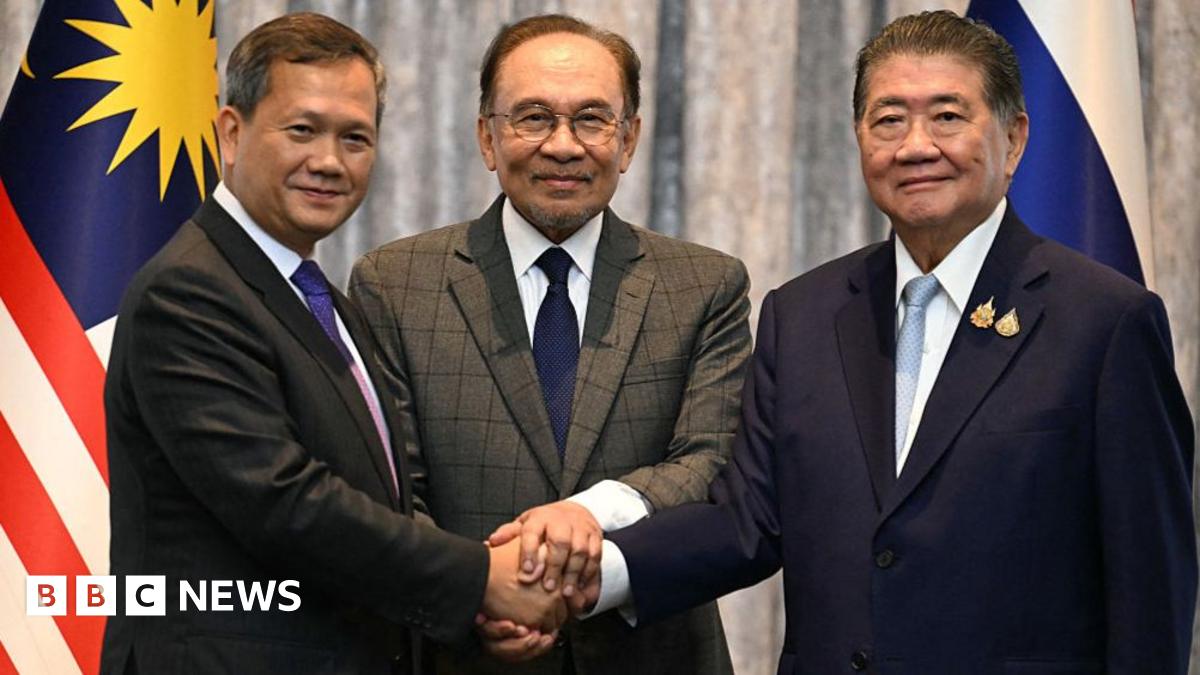
09:43 BST
 Jonathan Head
Jonathan Head
BBC South East Asia Correspondent
These are the first talks between Thai and Cambodian leaders since the fighting escalated dramatically last week.
Malaysia, which currently chairs the Association of South East Asian Nations (Asean), offered to mediate last Friday; Thailand politely refused, sticking to its position that the conflict can be resolved only through bilateral negotiations.
However, President Trump’s threat to halt tariff talks has forced Thailand’s hand. It needs a deal to reduce the 36% tariff rate it is now facing. The Thai economy depends on exports to the US.
But while Cambodia is willing to accept the US president’s demand for an immediate ceasefire, Thailand has said only that it will consider one if Cambodia shows what it calls sincere intentions. Heavy exchanges of artillery fire have continued overnight; more Thai villages have been hit by Cambodian rockets.
Without a verified withdrawal of troops by both sides, which, even if agreed would take many days to carry out, it will be difficult to stop the fighting even if both countries accept a ceasefire.

